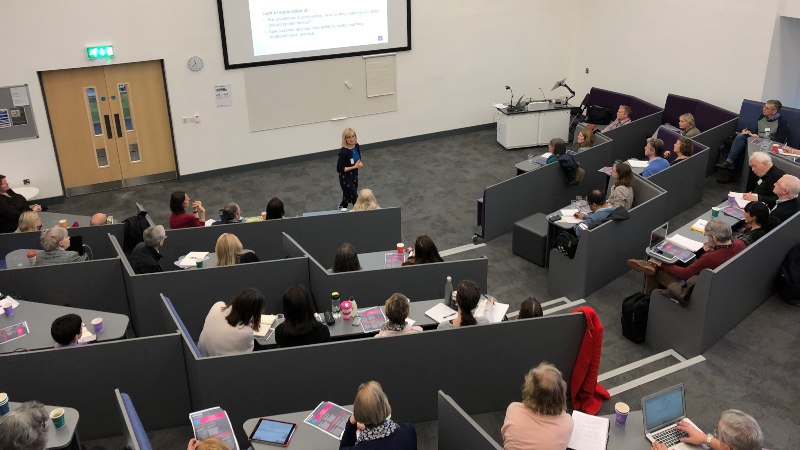Welcome to Our World: Navigating Neurodiversity in Academic Research
Completing a Master’s or Doctorate is a significant academic undertaking for anyone, but navigating it with the added complexities of neurodiverse traits presents unique challenges. In this session, we share insights from our lived experiences with dyslexia, dyspraxia, dysgraphia, and ADHD, highlighting the strategies that enabled us to complete our doctoral journeys. We join the collective advocating for neurodiversity inclusivity in academia, emphasising the valuable contributions individuals with neurodiverse traits can make to advancing coaching knowledge and theory. Finally, we issue a call to action for coach-specific research to better support researchers, practitioners, and clients with neurodiverse traits.
Dr Elizabeth Crosse
Elizabeth has extensive experience in the coaching profession. She describes herself as a research practitioner with a profound interest in the connection between learning and development. As a mentor coach supervisor, she focuses on the personal and professional development that enables coaches to create meaningful relationships that underpin a quality coaching experience. Elizabeth has navigated dyslexia and dyspraxia to achieve distinctions in three Master degrees and a Doctorate in Coaching and Mentoring. She was among the first accredited coach supervisors in the UK and holds the International Coaching Federation’s Master Certified Coach credential.
Dr Janine Roberts
Janine possesses extensive expertise in coaching, mentoring and cultivating highly effective leadership teams. She specialises in transforming unhealthy team and relationship dynamics that hinder collaboration, emotional wellbeing and performance. She has worked as a trusted coach, mentor, and board development lead for C-Suite executive leaders and teams within a diverse range of sectors. Janine’s acclaimed doctorate focussed on the impact of coaching on leader emotions in the context of organisational relationship dynamics. Her research has already been granted awards, most recently an award of excellence from the Harvard McLean Institute of Coaching. Janine is a dyslexic thinker powered by ADHD.

